Best & Worst: Book Adaptations
Hollywood vs The Written Word...
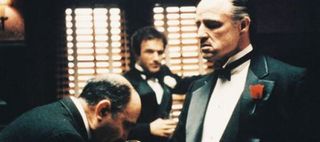
Best: The Godfather (1972)
The Book: Mario Puzo’s fabled crime saga is actually a fairly pulpy affair, well-written throughout but with a narrower focus than the all-conquering movie adaptation. As a stand-alone novel, it’s a fairly bog-standard slice of crime fiction.
The Film: Routinely topping various “Greatest Film Of All Time” lists, Francis Ford Coppola takes Puzo’s theme and runs with it, using the story of a New York crime family as a metaphor for the collapse of the American Dream. A far darker tale than the novel, The Godfather is a rare example of a film that improves upon its source material.
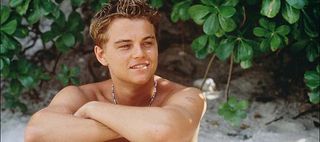
Worst: The Beach (2000)
The Book: Taking its place alongside fisherman’s trousers, braided hair and an irritating desire to “find oneself”, The Beach is an essential part of every backpacker’s travelling kit, a thrilling tale of paradise lost set on a secluded Thai island. Owing a significant debt to Lord Of The Flies , Alex Garland’s debut novel was a commercial smash, neatly translating Golding’s themes to a modern setting.
The Film: Things looked promising when Danny Boyle was announced as director, but the film ended up way short of expectations. Leo DiCaprio is fine as leading man Richard, but some distinctly dodgy set-pieces (the videogame sequence is excruciating) and a horribly butchered ending leave a sour taste in the mouth. An opportunity missed.
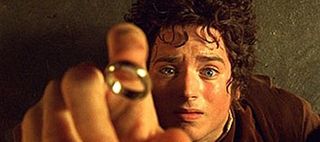
Best: The Lord Of The Rings (2001-2003)
The Book: Conventional wisdom would have you believe that J.R.R. Tolkien’s fantasy epic would be nigh-on unfilmable. Groaning with exposition, populated by a whole host of weird and wonderful creatures, and even boasting a number of its own languages, it would take a special talent indeed to do it justice on the big screen…
The Film: Peter Jackson was that talent, with his 10 hour trilogy managing to create a remarkably faithful representation of Tolkien’s sprawling universe without compromising too much on action and momentum. Any deviations from the source material were only taken after much agonising, and are uniformly for the better (Tom Bombadil, anyone?) You can’t please everyone of course, but Jackson can be rightly proud of creating a world that welcomes devotees and newbies alike.
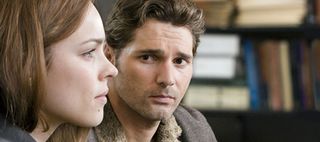
Worst: The Time Traveler's Wife (2009)
The Book: Unashamedly slushy throughout, Audrey Niffenegger’s high-concept romcom somehow manages to pull off the idea of a grown man visiting the six-year-old version of his lover without the whole thing seeming a bit dodgy. And even if Niffenegger’s grab for your heartstrings is fairly brazen, it’s an undeniably moving tale of thwarted love.
The Film: Eric Bana and Rachel McAdams do their best, but sadly, the sentimentality that is just about palatable on the page congeals into a saccharine mess on the screen. Trying to cram a fairly epic novel into a sub-2 hour runtime is a bridge too far for director Robert Schwentke, who relegates his supporting cast to virtual observers of the Bana-McAdams weep-off. Clumsy at best.
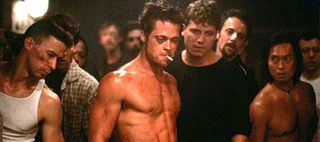
Best: Fight Club (1999)
The Book: The debut novel from subversive extraordinaire Chuck Palahniuk, Fight Club was apparently inspired by an incident in which the author arrived at work after a weekend scrap, only for his co-workers to make no mention of his badly bruised face. A fairly low-key release back in 1996, the book was re-released in 1999 on the back of the film’s massive popularity.
The Film: Adopting a slightly more optimistic tone than Palahniuk’s ultra-bleak novel, David Fincher’s film is still a jet-black meditation on masculinity. Signing up Brad Pitt as the enigmatic Tyler Durden was a masterstroke, his rough-around-the-edges charm cutting through the challenging subject matter to crowd-pleasing effect. Ed Norton has never been better either.
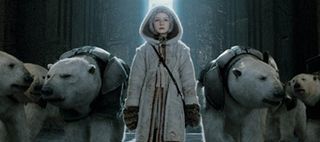
Worst: The Golden Compass (2007)
The Book: Philip Pullman’s His Dark Materials trilogy is a fantasy series that, if not as well-loved by teens as Harry Potter and friends, is every bit as compelling in its allegorical treatment of religion, faith and humanity. Plus, those armoured polar bears are pretty damn cool…
The Film: Topping Entertainment Weekly ’s 2008 poll of Hollywood’s worst adaptations, The Golden Compass fluffs its lines at almost every turn, ditching all of Pullman’s guile in favour of a series of lacklustre action sequences. The first part of a planned trilogy, the movie bombed at the box office, leaving parts two and three on a dusty shelf at the back of the Warner Brothers cupboard. Probably for the best, really.
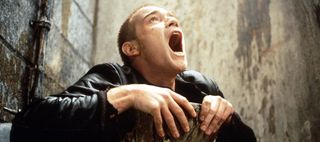
Best: Trainspotting (1996)
The Book: Written in Irvine Welsh’s near-incomprehensible Edinburgh dialect, Trainspotting has “cult classic” written all over it. A bleakly hilarious look at heroin use, it was longlisted for the 1993 Booker Prize before being rejected on grounds of taste. According to Irvine Welsh, it “offended the sensibilities of two female judges.” Can’t think why…
The Film: A breathlessly high-energy adaptation that simultaneously brought the book to a wider audience whilst giving British cinema an almighty kick up the arse. Danny Boyle’s unflinching take on the novel’s startlingly frank portrayal of drug abuse won over critics and audiences alike, and even got the nod from Welch himself: he crops up in a cameo as dealer Mikey Forrester.

Worst: The Perfect Catch (2005)
The Book: Don’t recall the title? That’s because The Perfect Catch is the US remake of Nick Hornby’s Fever Pitch . Essentially a love letter not only to Hornby’s beloved Arsenal, but to the beautiful game as a whole, Fever Pitch ’s success was born out of its ability to strike a chord with football fans everywhere (regardless of their club loyalties), not to mention their long-suffering spouses.
The Film: Swapping football for baseball automatically demolished the film’s UK audience, but even allowing for cultural differences, this Farrelly Brothers-helmed translation eschews much of Hornby’s wry humour in favour of crushingly run-of-the-mill rom-com titters. Pretty much unrecognisable from the book.
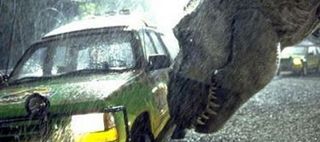
Best: Jurassic Park (1993)
The Book: Michael Crighton’s dino-thriller is a classic slab of poolside pulp, a page-turner of the first degree. It’s a Frankenstein -esque cautionary tale against man’s constant need to play God. With dinosaurs. What more do you want?
The Film: Spielberg’s rip-roaring adventure has one major advantage over the book. Can you guess what it is? Yep, even the most vivid imagination couldn’t have conjured up a baddie as terrifying as Steve’s T-Rex, a toothy villain who somehow manages to turn hero at the film’s raptor-munching finale. The greatest creature-feature in history? It might just be…
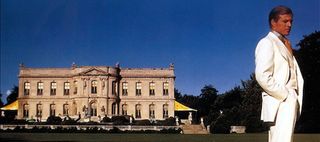
Worst: The Great Gatsby (1974)
The Book: Another critique of the American Dream, this time from F. Scott Fitzgerald. Released in 1925, the novel charts the materialism and decadence that became part and parcel of America’s post-war revival, with anti-hero Jay Gatsby the epitome of what Fitzgerald saw as the loose morals of the age.
The Film: Certainly not the worst film on the list, but nonetheless a thoroughly disappointing take on a classic piece of literature. Redford is the main problem, his affable Gatsby not nearly amoral enough to do justice to his on-page counterpart. Mia Farrow is also pretty wet as Daisy Buchanan, encapsulating the film’s limp approach to Fitzgerald’s fiery social criticism.
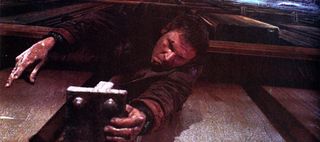
Best: Blade Runner (1982)
The Book: Do Androids Dream Of Electric Sheep ? So asks sci-fi legend Phillip K. Dick in his 1968 tale of bounty-hunter Rick Deckard and his adventures in a post-apocalyptic version of Earth. A compelling look at what it is to be human. Or indeed android…
The Film: Despite director Ridley Scott having claimed to never have read the entire novel, Dick was suitably impressed with his treatment, claiming that, “It was my own interior world…they caught it perfectly.” Scott’s dystopian fantasy still hits the spot several decades later, as shown by Secret Cinema ’s recent celebration.
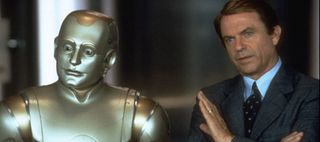
Worst: Bicentennial Man (1999)
The Book: A novella from the pen of science-fiction legend Isaac Asimov, Bicentennial Man explores what it is to be human by relating the tale of a robot with a computerised brain so advanced that it begins to develop human traits of emotion.
The Film: A concept that already teeters on the brink of sentimentality is dipped in a vat of schmaltz by Robin Williams, in full-on rent-a-cringe mode. It’s essentially Mrs. Doubtfire all over again, with Williams swapping the false breasts for an aerosol can of silver paint. Somebody get him to the scrap metal yard quick, and put us all out of our misery.
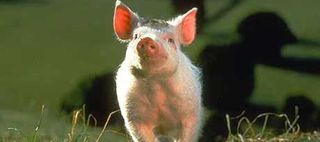
Best: Babe (1995)
The Book: A seminal children’s adventure, Dick King Smith’s The Sheep Pig combines loveable characters with a mixture of heartbreak (anyone who can keep a dry eye when Maa meets her maker clearly isn’t quite right) and happy ending. 20 years as a farmer helped Smith get the tone bang-on, in what must be the greatest novel about a talking pig ever written.
The Film: Remarkably, the inevitable American accents don’t grate half as much as they should do, as the plucky farmyard gang set about charming all but the grumpiest of filmgoers. The singing mice are an excellent addition, whilst James Cromwell is remarkably affecting despite only having a handful of lines. Watch this and L.A. Confidential back to back to see just how underrated an actor he is! Talk about range…
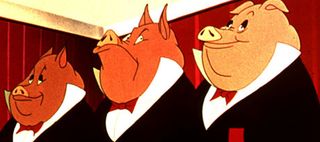
Worst: Animal Farm (1954)
The Book: Published in 1945, George Orwell’s biting farmyard satire takes a swipe at Russia’s Stalinist regime, in this tale of ruthless porcine dictator Napoleon and the corrupt “revolution” he presides over. Rewriting history, slaughtering objectors, banning certain books…it’s all in there, as Orwell mounts an eloquent wake-up –the-nation speech in defence of democracy.
The Film: A landmark in British animation, Halas and Batchelor’s livestock are nonetheless a little too Disney for the gravity of the subject matter, looking as though they might break into a cheerful ditty at any minute. However, that criticism pales into insignificance next to the altered ending, which inexplicably tacks on a happy dénouement that entirely undercuts Orwell’s message. Bizarre.
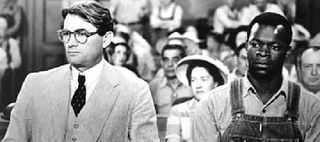
Best: To Kill A Mockingbird (1962)
The Book: A Pulitzer Prize-winning entry to the canon of great American literature, Harper Lee wrote To Kill A Mockingbird as a searing response to the racism entrenched in the segregated South she had grown up in. As a withering treatise against prejudice, it takes some beating.
The Film: Gregory Peck’s performance is so pitch-perfect, it’s more or less impossible to separate crusading father Atticus Finch from the Oscar-winning actor. Peck was even invited to write an introductory paragraph for the 1962 edition of the novel, so synonymous was he with the story. A classic of American filmmaking to rank alongside the greats, it’s still probably the greatest courtroom drama ever to hit the silver screen.
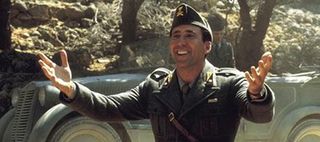
Worst: Captain Corelli's Mandolin
The Book: A period romance set on the idyllic Greek Island of Kefalonia during the Italian and German occupation of WW2, Louis De Bernieres scooped the 1995 Commonwealth Writer’s Prize for his touching portrayal of relationships under extreme duress.
The Film: Director John Madden sends subtlety flying out the window by casting Nic Cage as Corelli, who reels off a performance stuffed with cod-Italian “Mamma-Mia” bluster, and yet somehow wins the heart of Penelope Cruz’s supposedly intelligent young woman. De Bernieres’ stirring prose is watered down into easy-to-swallow mush, leaving viewers struggling to care about any of the book’s well-loved characters.
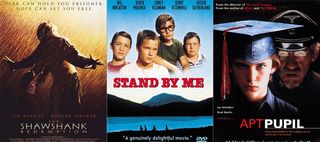
Best: Different Seasons (1986, 1994, 1998)
The Book: This collection of short stories represents Stephen King’s best work outside of his novels, and takes a welcome deviation from the more schlocky subject matter of some of his other tales. Rita Hayworth and The Shawshank Redemption , Apt Pupil and The Body use the bite-size formula to great effect, although the grisly The Breathing Method is a bit of a flop.
The Film: That should be “films”, with the three best stories all having received the movie treatment. The Shawshank Redemption is arguably the best King adaptation ever committed to celluloid, whilst Stand By Me is almost word-for-word faithful in it’s translation of coming-of-age fable The Body . Apt Pupil meanwhile is oft overlooked, despite boasting an excellent turn from Ian McKellan. Whilst there have been more than a few shocking King adaptations, these three showed how it should be done.
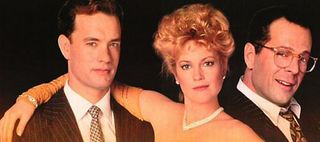
Worst: Bonfire Of The Vanities (1990)
The Book: Tom Wolfe’s inside scoop on the venal world of class war in ‘80s New York was long-thought to be unfilmable, a scathing social satire populated by a cast of singularly unlikable characters. However, nobody had told Brian De Palma that…
The Film: De Palma misses the mark spectacularly, playing things for laughs when a far more considered touch was required. Bruce Willis gives off a distinct reek of ham as a boozy tabloid hack, whilst a fresh-faced Tom Hanks is way out of his depth as Wall Street hotshot Sherman McCoy. 5 Golden Raspberry nominations should give you some idea of just how misjudged this one was…
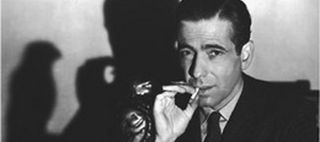
Best: The Maltese Falcon (1941)
The Book: Originally serialised in pulp magazine The Black Mask , Dashiell Hammett’s hard-boiled detective thriller set the template for a thousand and one imitators, with protagonist Sam Spade the definitive cold-hearted gumshoe. Every private dick yarn you’ve ever read owes a certain something to this 1930 classic.
The Film: John Huston cast Humphrey Bogart as Spade in his 1941 adaptation, an explosive opening entry in the Film Noir genre. The film that transformed Bogie’s career from B-Movie regular to full-blown movie star, it’s a deliciously dark slice of detective drama, only matched by Bogart’s other defining turn in equally ace Raymond Chandler adaptation, T he Big Sleep .
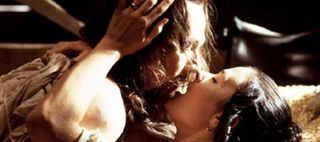
Worst: The Scarlet Letter (1995)
The Book: A tragic romance, designed to shine a critical light on Puritan intolerance, Nathaniel Hawthorne’s masterpiece follows the luckless Hester Prynne, a woman who gives birth after committing adultery, and isn’t allowed to forget about it in a hurry by the local townsfolk…
The Film: A hopelessly miscast Demi Moore swaps Hester’s dignified suffering for soapily gratuitous nudity in this bodice-ripper that bears little or no resemblance to the book that shares its name. In fairness, the opening credits admit to having “freely adapted” Hawthorne’s work, although there’s no justifying the cop-out happy ending that gleefully shrugs off any last vestige of credibility in favour of doing things the Hollywood way. Yuck.
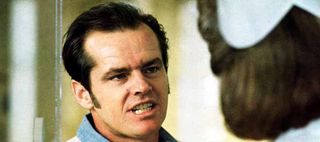
Best: One Flew Over The Cuckoo's Nest (1975)
The Book: Former mental health worker Ken Kesey presents a rather savage indictment of the care system in this typically ‘60s anti-authoritarian tale. In R.P. McMurphy, Kesey created one of the greatest rebels in literary history, making his eventual fate all the more heartbreaking when it eventually arrives.
The Film: In much the same way that he made The Shining ’s Jack Torrance his own, Jack Nicholson inhabits McMurphy with such gusto, it’s impossible to re-read the book now without recalling his Oscar-winning turn. That said, he’s matched all the way by Lousie Fletcher, whose monstrous Nurse Ratched has to go down as one of cinema’s all-time greatest villains. Kesey was reportedly not a big fan, but he’s about the only person who wasn’t. Shame, really.
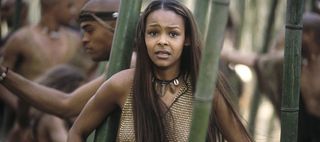
Worst: The Time Machine (2002)
The Book: H.G. Wells allows his imagination to run away with him, using the device of time travel to comment upon late nineteenth century fears concerning the rise of industrialism. If only he could have travelled into the future to see what his novel would be translated into, he might not have bothered…
The Film: Social commentary takes a back seat to preposterous action and Jeremy Irons in bondage gear. Guy Pearce makes a decent fist of things as time-hopping professor Alexander Hartdegen, but the fact that he’s supported by Z-list pop star Samantha Mumba means he’s fighting a losing battle.

Best: The Girl With The Dragon Tattoo (2009)
The Book: The opening salvo in Swedish author Stieg Larsson’s phenomenally successful Millenium Trilogy , The Girl With The Dragon Tattoo is a warped, unsettling serial-killer yarn, in which an investigative journalist is thrown together with a profoundly damaged young woman to try and solve the disappearance of a missing girl.
The Film: Niels Arden Oplev’s Swedish-language film shows plenty of guts by refusing to shy away from the sexual violence of the novel, but it’s Naomi Rapace’s turn as the haunted Lisbeth Salander that really steals the show, a compelling balance of kick-ass girl power and wounded vulnerability. Despite this excellent adaptation being just a year old, a thoroughly unnecessary US remake already hovers threateningly on the horizon. D’oh!

George was once GamesRadar's resident movie news person, based out of London. He understands that all men must die, but he'd rather not think about it. But now he's working at Stylist Magazine.
There was "no version" of Sonic 3 that wouldn't include Live and Learn according to director Jeff Fowler: "The fans would hunt me down"
Amid Oscar buzz, Zoe Saldana opens up on her new perspective on Hollywood and why she's only really proud of Avatar and Emilia Pérez: "I think I just have to accept who I am as a creative person"
There was "no version" of Sonic 3 that wouldn't include Live and Learn according to director Jeff Fowler: "The fans would hunt me down"
Amid Oscar buzz, Zoe Saldana opens up on her new perspective on Hollywood and why she's only really proud of Avatar and Emilia Pérez: "I think I just have to accept who I am as a creative person"